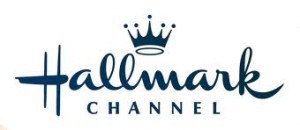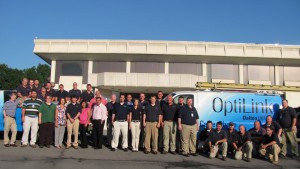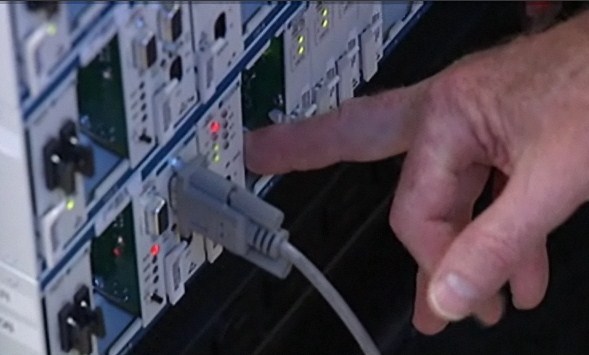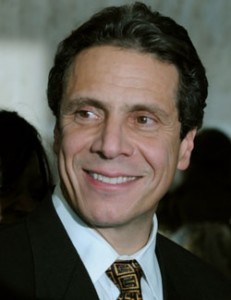 Time Warner Cable subscribers are at reduced risk of losing access to Disney owned channels like ESPN, Disney and local television stations in several major cities now that the two companies are close to an agreement. But, as usual, regardless of whether Time Warner Cable whittles down Disney’s demands or Disney secures dramatically higher pricing for its cable channels, one thing is certain: Time Warner Cable subscribers will ultimately lose, facing higher cable bills in 2011.
Time Warner Cable subscribers are at reduced risk of losing access to Disney owned channels like ESPN, Disney and local television stations in several major cities now that the two companies are close to an agreement. But, as usual, regardless of whether Time Warner Cable whittles down Disney’s demands or Disney secures dramatically higher pricing for its cable channels, one thing is certain: Time Warner Cable subscribers will ultimately lose, facing higher cable bills in 2011.
AT&T U-verse customers: your nail-biting has just begun, as AT&T sends home postcards announcing the potential loss of the Hallmark Channel and its companion the Hallmark Movie Channel. AT&T’s contract expired at 12:01 AM this morning, but Hallmark said it was willing to keep the signals running on U-verse while negotiations continued.
Ultimately, it’s all about who gets a bigger piece of your money. Be it local broadcasters, cable networks, or programming conglomerates who can darken a dozen channels on your basic cable lineup, all say the cable industry is enriching itself on subscriber fees and all these networks are asking for is a bigger share of the pie. The cable industry says cable programming fees are the most significant part of rate increases, as the industry is unwilling to absorb most of the programming rate hikes. Cable wants to continue its healthy returns, so programming rate hikes come out of your pocket, not theirs.
 Sometimes the amounts involved come down to pocket change, other times several dollars a month can be involved.
Sometimes the amounts involved come down to pocket change, other times several dollars a month can be involved.
For example, Disney-owned ESPN is typically the most expensive basic cable channels in the lineup.
SNL Kagan, a cable research firm, estimates Disney charges Time Warner $4.08 a month per subscriber to carry ESPN. The costs are high because ESPN competes with major broadcast networks to secure increasingly expensive television rights to major sporting events. ESPN’s early days were filled with coverage of volleyball, log-rolling, and billiard sports. The rights to air these events were affordable. But with the benefit of increased programming fees, the cable network successfully bid for professional football and other popular sports. The more money ESPN charges, the more money they can use in bidding wars to secure television rights.
 With most cable networks charging closer to 20 cents a month per subscriber, what ESPN charges (and demands) for contract renewals can, all by itself, trigger rate increases.
With most cable networks charging closer to 20 cents a month per subscriber, what ESPN charges (and demands) for contract renewals can, all by itself, trigger rate increases.
AT&T and Hallmark are currently arguing over an increase in subscriber fees that currently run around just four cents per month per subscriber. AT&T argues it doesn’t want to pay the percentage increase Hallmark is demanding, even if it amounts to pennies per month.
ESPN’s rate increase demands often exceed 50 cents, if not higher.
This year a new issue enters the debate — online video programming fees. Disney wants to generate income from a whole new tier of sports programming – that streamed online to Time Warner Cable customers. The sticking point in Time Warner Cable and Disney’s negotiations seems to hinge on the cable company ponying up for ESPN3, an online network. The concept of cable operators paying programming fees for online content is highly controversial, especially when broadband customers could face ever-increasing broadband bills blamed on the same “increased programming costs” that have taken basic cable packages from under $20 a month in the 1980s to over $60 a month today.
 ESPN3 reportedly wants 10 cents a month from every Time Warner Cable broadband customer, regardless if they have the slightest interest in watching ESPN3. Some in the cable industry fear once this precedent is set, other cable programmers with online shows could start demanding payments for those as well.
ESPN3 reportedly wants 10 cents a month from every Time Warner Cable broadband customer, regardless if they have the slightest interest in watching ESPN3. Some in the cable industry fear once this precedent is set, other cable programmers with online shows could start demanding payments for those as well.
While Time Warner Cable continues to resist, other major cable companies like Comcast Corp., Cox Communications Inc., Charter Communications and phone companies AT&T, Frontier, and Verizon Communications have ESPN3.com agreements with Disney. Nearly all have also boosted their broadband prices for consumers as well.
Despite assurances from Time Warner Cable’s Roll Over or Get Tough website, the cable industry typically caves in on programming fee increases, often agreeing to split the difference. Since they simply pass those increases along to consumers, it doesn’t impact their bottom line until customers start canceling cable service.
 Subscribers on Time Warner Cable’s blog keep coming up with an innovative idea to solve these problems — allow subscribers to pick and choose (and pay for) only the channels they want to receive. That novel a-la-carte concept invokes fear in the cable industry like garlic repels vampires.
Subscribers on Time Warner Cable’s blog keep coming up with an innovative idea to solve these problems — allow subscribers to pick and choose (and pay for) only the channels they want to receive. That novel a-la-carte concept invokes fear in the cable industry like garlic repels vampires.
In the end, even if Disney and Time Warner Cable can’t reach an agreement, should screens darken September 2nd, watch in amazement as a deal is achieved hours after the disruption in programming begins. Then, just a few months later, the accompanying rate hike will surely follow.
[flv width=”640″ height=”380″]http://www.phillipdampier.com/video/WESH Orlando FL Will Bright House Customers Lose ESPN 8-26-10.flv[/flv]
WESH-TV in Orlando notes Bright House cable customers are also potentially affected because Time Warner Cable negotiates on behalf of that cable company, which has a major presence in central Florida. (1 minute)


 Subscribe
Subscribe










